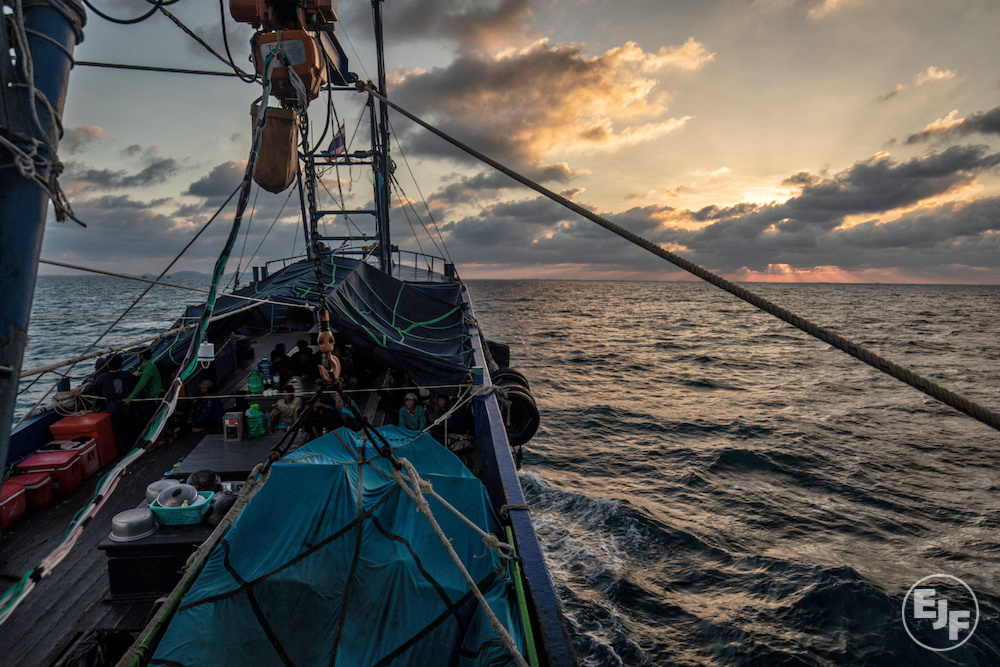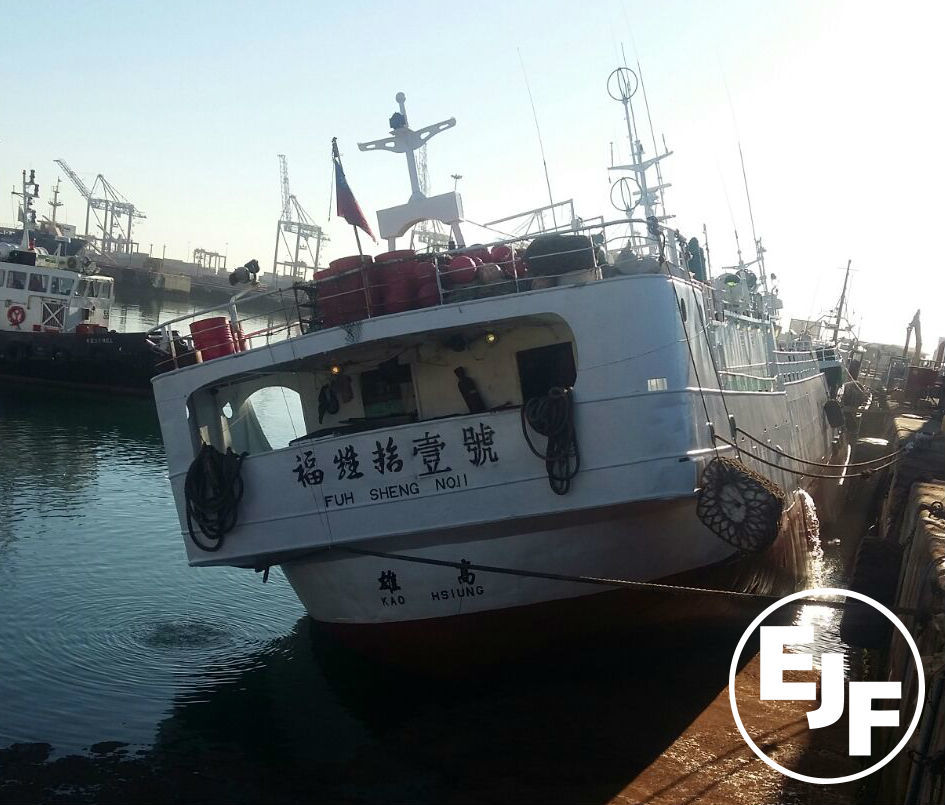
EJF’s ten principles for global transparency in the fishing industry launched
The ‘ten principles for global transparency in the fishing industry’ were launched this week ahead of the Our Ocean conference, which focuses on generating commitments and taking action to maintain the sustainability of our oceans. The Environmental Justice Foundation's simple, low-cost measures – which include publishing licence lists and giving vessels unique numbers – are well within the reach of any country and could play a pivotal role in the battle against illegal fishing and human rights abuse in the sector.
EJF’s report and film shows that the global fishing industry suffers from a shocking lack of transparency, allowing Illegal operators to create as much confusion as possible around their identities; escaping detection by changing vessel names; concealing ownership; flying different flags to avoid detection; or removing ships from registers entirely.
Vessel identification systems – which allow the boats to be tracked – are tampered with, switched off or missing altogether; ‘front’ companies are set up so that the true beneficiaries of illegal practices can evade prosecution.
These activities allow illegal fishing to thrive. It is estimated that illegal, unreported and unregulated fishing costs the global economy between US$10 - 23.5 billion every year and is a critical factor undermining efforts to achieve sustainable fisheries.
Vulnerable coastal communities that rely on healthy fish stocks for food security and income suffer as a consequence. In West Africa, a region with some of the highest levels of illegal fishing, 6.7 million people depend directly on fisheries for food and livelihoods.
Crucially, this is part of a vicious cycle of degradation and decline. As ocean ecosystems are degraded and fish stocks fall, so does income from the vessels. To scrape a profit, unscrupulous companies exploit workers, often engaging in violent human rights abuses and employing forced, bonded and slave labour. EJF has documented shocking abuse aboard fishing vessels across the world – from slavery to murder – all facilitated by the lack of transparency.
EJF’s Executive Director Steve Trent says:
“The time has come to make the fishing industry open and transparent and to move from words to action. This does not require new, sophisticated technologies, or unrealistic expense. Give vessels unique numbers – like a car number plate – publish licence lists and make tracking data public: these measures, along with the few others on our list, are politically realistic, logistically and technologically deliverable right now and, crucially, economically viable. They are within the reach of all countries, today.
The widespread adoption of these ten basic principles would transform the global seafood production sector and allow both governments and businesses to secure legal, sustainable and ethical seafood, eradicating most illegal fishing and the most serious human rights abuses.”
EJF’s ten principles for global transparency in the fishing industry state that all countries should:
1. Give all vessels a unique number.
2. Make vessel tracking data public.
3. Publish lists of fishing licences and authorisations.
4. Publish punishments handed out for fisheries crimes.
5. Ban transferring fish between boats at sea – unless pre-authorised and carefully monitored.
6. Set up a digital database of vessel information.
7. Stop the use of flags of convenience for fishing vessels.
8. Publish details of the true owners of each vessel – who takes home the profit?
9. Punish anyone involved in illegal, unreported and unregulated fishing.
10. Adopt international measures that set clear standards for fishing vessels and the trade in fisheries products.
Read the full report.
Watch the film.
SIGN UP FOR OUR EMAILS AND STAY UP TO DATE WITH EJF

